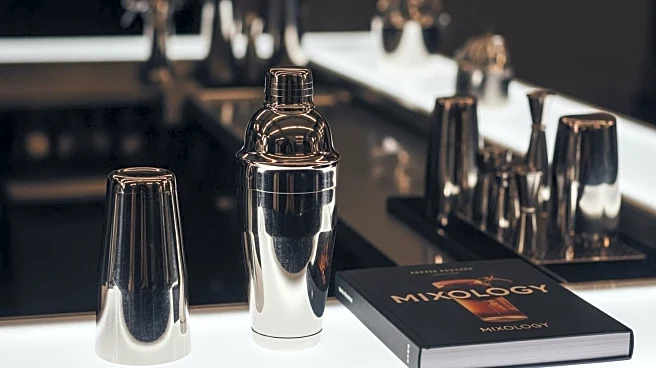What's Happening?
Alcohol marketers are increasingly recognizing bartenders as influential figures in shaping consumer preferences and brand advocacy. Following a near-crackdown on alcohol advertising by the World Health
Organization, brands are exploring alternative marketing strategies that leverage the real-world influence of bartenders. These frontline workers are seen as curators of taste and trend, making thousands of drink recommendations annually. The shift towards bartender-driven marketing reflects a broader trend of integrating earned media into brand strategies, where bartenders act as micro-influencers, promoting products through authentic interactions rather than paid placements.
Why It's Important?
The focus on bartenders as influencers represents a significant shift in alcohol marketing, driven by changing consumer habits and regulatory pressures. As traditional media channels face increased scrutiny and potential restrictions, brands are seeking more sustainable and authentic ways to engage consumers. Bartenders offer a unique opportunity to connect with customers at the point of sale, influencing purchasing decisions through personal recommendations. This approach aligns with the growing consumer demand for transparency and authenticity, potentially enhancing brand trust and loyalty. For the alcohol industry, leveraging bartenders could lead to more effective marketing strategies that resonate with modern consumers.
What's Next?
Alcohol brands are likely to continue investing in bartender training and advocacy programs to strengthen their influence in the market. This includes developing strategies to measure the impact of bartender recommendations on sales and brand perception. As on-premise technology advances, brands may explore partnerships that enable tracking of menu placements and drink recommendations, linking them to purchase data. The industry may also see a shift towards more experiential marketing, where brands engage consumers through interactive and immersive experiences facilitated by bartenders. This could redefine the role of frontline workers in marketing, positioning them as key players in brand strategy.
Beyond the Headlines
The emphasis on bartenders as influencers highlights the evolving nature of marketing in the alcohol industry. As brands navigate regulatory challenges and changing consumer preferences, the integration of earned media into marketing strategies may become more prevalent. This approach raises questions about the ethical implications of influencer marketing, particularly in industries where health and safety are concerns. Brands will need to balance authenticity with responsibility, ensuring that their marketing practices align with consumer expectations and regulatory standards. The shift towards bartender-driven marketing could also influence broader industry practices, encouraging other sectors to explore similar strategies.









